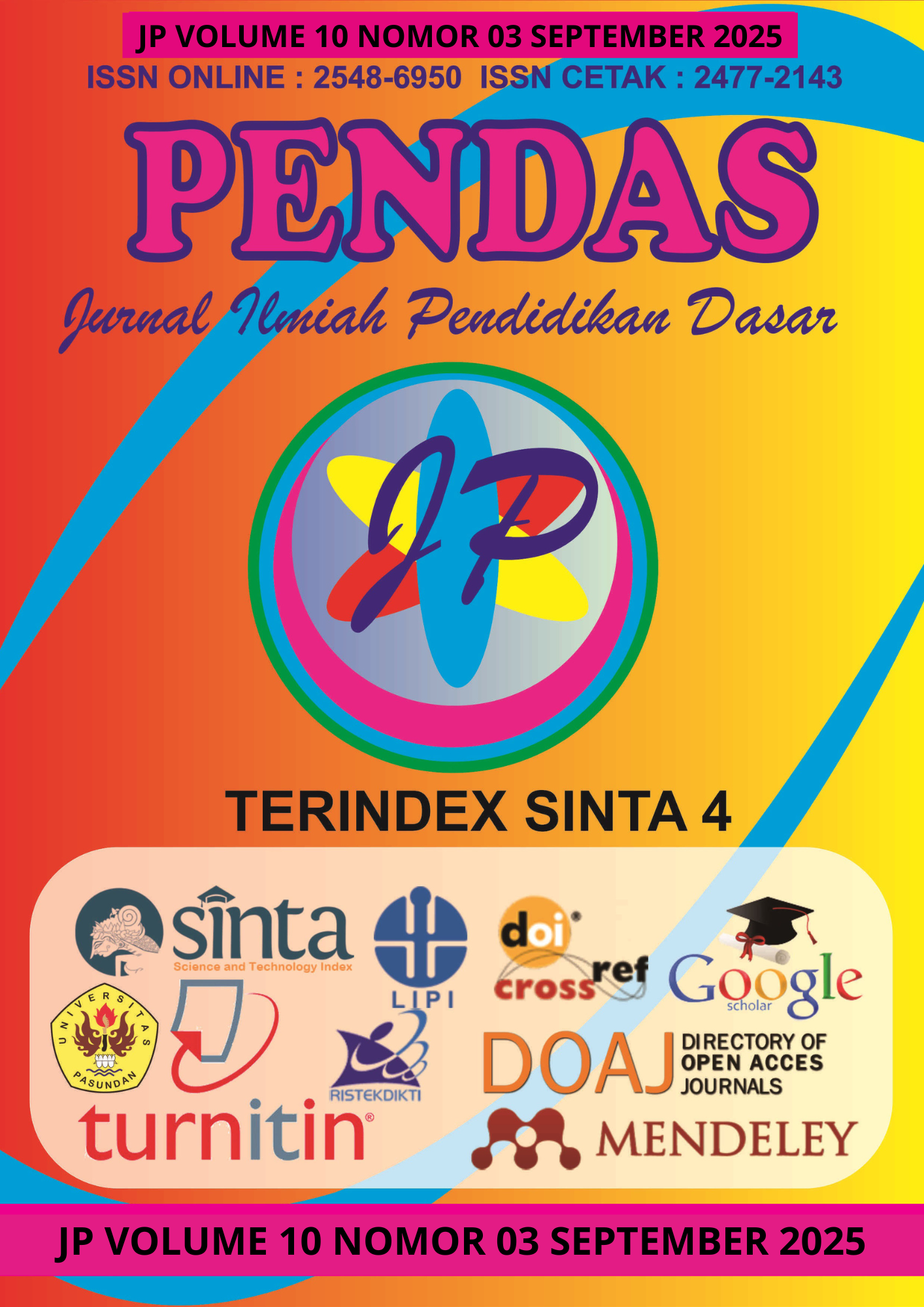MANAJEMEN STRATEGI SEBAGAI PILAR UTAMA DALAM TRANSFORMASI SISTEM PENDIDIKAN
DOI:
https://doi.org/10.23969/jp.v10i3.28376Keywords:
strategic management, educational transformation, education systemAbstract
This study aims to analyze the role of strategic management as a key pillar in the transformation process of the education system. Educational transformation requires an approach that is not only structural but also strategic, in order to address contemporary challenges systematically and sustainably. This research employs a descriptive qualitative method using a literature review approach, examining various theories and strategic practices in educational management. Data were obtained from various written sources such as academic books, national journals, policy documents, and relevant previous research. The findings indicate that strategic management plays a vital role in defining the direction and goals of education, enhancing the effectiveness of program implementation, promoting transformational leadership, building a culture of quality, and strengthening the synchronization between policies and their implementation in the field. Well-formulated strategies serve as a bridge between national educational visions and operational practices at the institutional level. Leaders with strategic management capabilities are more adaptive to change and capable of creating collaborative and results-oriented work systems. These findings affirm that strategic management is not merely an administrative planning tool, but also the main framework in shaping the future of education. With the implementation of contextual, data-based, and quality-oriented strategies, educational institutions will be better prepared to face policy changes, student needs, and global demands. Therefore, strengthening strategic capacity at both institutional and individual levels is a crucial step in achieving sustainable education reform.
Downloads
References
Arifin, Z. (2017). Evaluasi Pembelajaran: Prinsip, Teknik, dan Prosedur. Bandung: Remaja Rosdakarya.
Depdikbud. (2017). Kebijakan dan Strategi Pembangunan Pendidikan Nasional. Jakarta: Kementerian Pendidikan dan Kebudayaan.
Gusmian, I. (2016). Manajemen Strategis Pendidikan. Jakarta: Rajawali Pers.
Mulyasa, E. (2016). Manajemen dan Kepemimpinan Kepala Sekolah. Bandung: Remaja Rosdakarya.
Muslich, M. (2016). Manajemen Pendidikan Modern. Yogyakarta: Ar-Ruzz Media.
Najah, N., Suriansyah, A., & Purwanti, R. (2024). Meningkatkan Kemampuan Bekerjasama Siswa Menggunakan Kombinasi Model Pembelajaran PENTAS Pada Muatan IPA Kelas IV SD. Jurnal Teknologi Pendidikan dan Pembelajaran, 2(2), 635–643.
Sagala, S. (2017). Manajemen Strategik dalam Pendidikan. Bandung: Alfabeta.
Sanjaya, W. (2016). Perencanaan dan Desain Sistem Pembelajaran. Jakarta: Kencana.
SA, K. N., & Suriansyah, A. (2025). Model Penjaminan Mutu dengan Pendekatan Neuroleadership dan Sistem Berbasis Komunitas dalam Meningkatkan Kualitas Pendidikan Era Abad ke-21. CENDEKIA: Jurnal Ilmu Pengetahuan, 5(1), 149–156.
Siagian, S.P. (2016). Manajemen Strategik. Jakarta: Bumi Aksara.
Soetjipto, L., & Kosasi, A. (2017). Kepemimpinan Pendidikan. Jakarta: Prenada Media.
Sudjana, N. (2017). Dasar-Dasar Proses Belajar Mengajar. Bandung: Sinar Baru Algensindo.
Suryosubroto, B. (2017). Strategi Pembelajaran Berorientasi Standar Proses Pendidikan. Jakarta: Rineka Cipta.
Susanto, H. (2017). Kebijakan Pendidikan: Perspektif Strategis. Jakarta: Prenadamedia Group.
Tilaar, H.A.R. (2017). Perubahan Sosial dan Pendidikan. Jakarta: Grasindo.
Trilling, B., & Fadel, C. (2009). 21st Century Skills: Learning for Life in Our Times. San Francisco: Jossey-Bass.
Downloads
Published
Issue
Section
License
Copyright (c) 2025 Pendas : Jurnal Ilmiah Pendidikan Dasar

This work is licensed under a Creative Commons Attribution 4.0 International License.














































